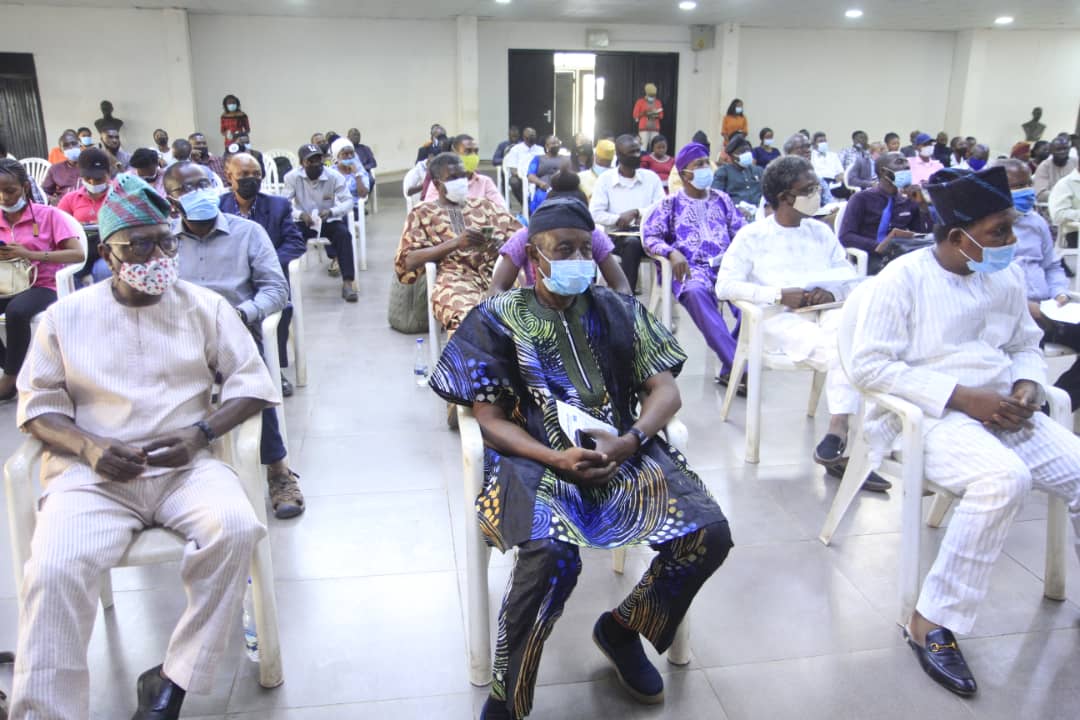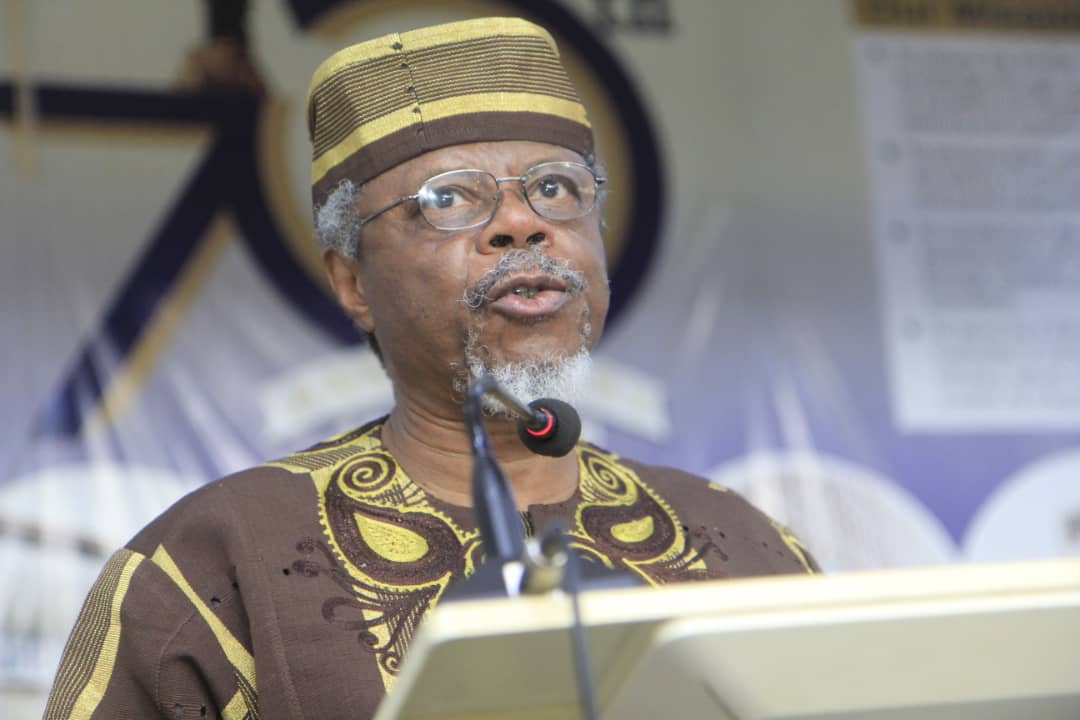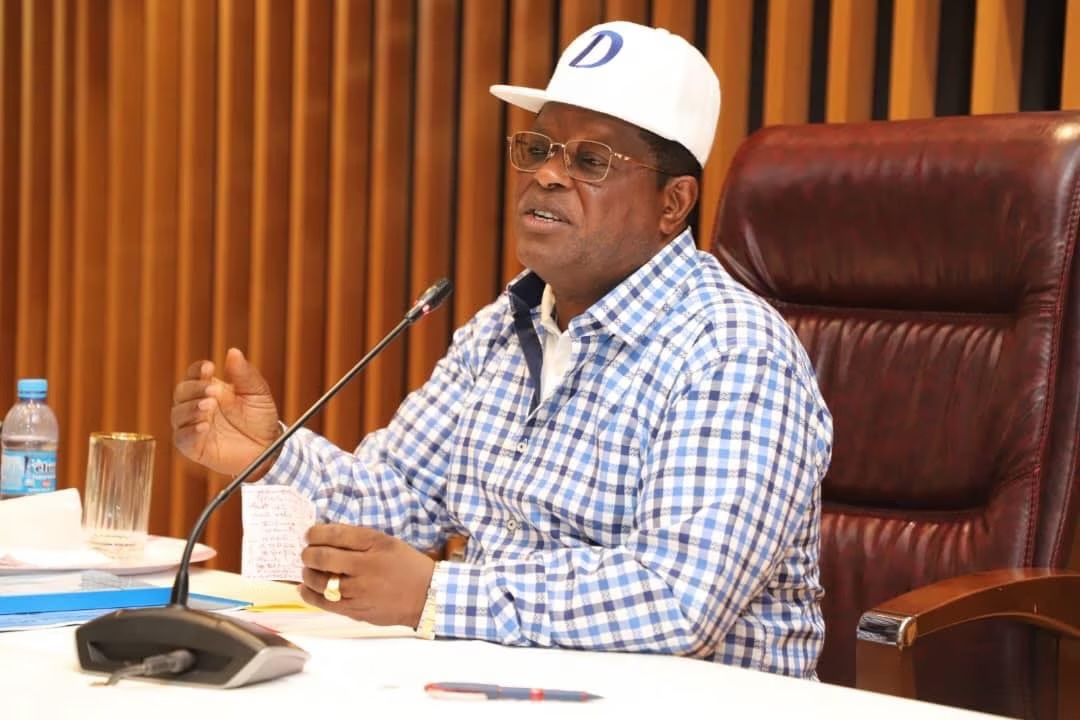

This was the position of Toyin Falola, globally celebrated Professor of History with his base at the University of Texas, Austin, United States of America, while speaking on Tuesday at the maiden edition of the higher doctorate lecture series, organised by the Postgraduate College of the University of Ibadan.
Professor Falola, the Jacob and Frances Sanger Mossiker Chair in the Humanities, the University of Texas, Austin, made headlines in 2021 becoming the first in the university’s history to bag the institution’s academic D.Litt.
Speaking on the topic, ‘The University of Ibadan in the Global Academy,’ Falola praised the alumni community of the University of Ibadan.
According to him, “The fact can be stated that the University of Ibadan remains Nigeria’s global university and has been confirmed to be the face of university education in the country.
Apart from being the nation’s undisputed first and the best university, the most acclaimed ranking institutions have consistently rated the university as one of the best on the continent and, unsurprisingly, as belonging to the highest echelons of academic institutions in the world.
According to Times Higher Education, the university makes the list of the first 500 institutions on the planet. These ratings are a testimony of the impact that the institution has had on its immediate community, the nation, and the world.
“A critical component of the university’s impact and a beacon of shining light to several other institutions are the members of the intellectual community, that is, the teaching staff. It is a known fact that the University of Ibadan alumni and students have proven exceptional across numerous domains. This culture of excellence can be said to have been cultivated by their handlers on campus, that is, the members of the academic staff. Ibadan’s intelligentsia has exhibited unparalleled excellence across different spheres of temporal knowledge.”
Going into specifics, Falola mentioned that “In the sciences, for instance, the University of Ibadan has demonstrated beyond all reasonable doubt that it is not only one of the most important players but also the institution to beat, and the records have confirmed this.
Internationally renowned ranking organisations, such as the AD Scientific Index, which releases the well-anticipated World Scientist and University Rankings, have acknowledged the institution’s scientific pre-eminence.
In the highly respected rankings, UI has consistently outmatched its counterparts in Nigeria, West Africa, and even globally.
In the past five years, UI has ranked the number one university for the Sciences in Nigeria, averaging around the 20th to 25th place out of almost 1,100 institutions on the African continent. Globally, it has averaged around 1,400 out of 15,000 universities, placing it in the top fifteen percentile.
“Academics at the school have the highest cumulative number of citations in the country, the top 11 (out of over 1,000) in Africa, and the 722nd (out of almost 15,000) globally, confirming the importance and relevance of the research conducted by the institution’s scholars. Specific areas in which the institution champions the rest include medical and health, as well as natural sciences.
“Reputable members of faculty that make it into the top 100,000 scientific scholars on earth include Professor of Biochemistry, Olatunde Faronbi, who boasts of over 12,000 citations of his work on Google Scholar, ranks as the second most-reputed scientist in Nigeria, and makes the top 200 on the continent. There is physician and Professor of Community Medicine, Olayinka Stephen Ilesanmi, who ranks sixth in the country, one of the top 300 in Africa, and whose works have attracted over 28,000 citations. The third academic from Ibadan within this category is an erstwhile college administrator, former minister of Health and a Professor of Obstetrics and Gynaecology, Isaac Folorunsho Adewole. He is regarded as Nigeria’s 9th highest achieving scholar, one of Africa’s finest 300, with over 17,000 scholarly citations to his name. Other reputable names include the institution’s incumbent principal and Professor of Chemistry, Kayode Adebowale, internationally renowned microbiologist, award-winning researcher, WHO Consultant, and a UK Department for International Development (DfID) designated African Research Leader, Iruka Okeke.”
Also speaking, the Vice-Chancellor, Professor K.O. Adebowale, represented by the Provost of the Postgraduate College, Professor Jonathan Babalola, reiterated the need for universities to be the drivers of societal development.
“As agents of development and engines of growth, universities are to champion the development of the society. Universities should generate knowledge, transmit knowledge, and share knowledge. These are the mandates of the university. The core quality of a higher doctorate therefore is output of cutting edge researches. This aligns with the mission and vision of the University of Ibadan. To produce excellent results, universities should be prioritised. This has not been so in Nigeria, leading to repeated brain drain. Excellence, research, teaching and global visibility gave the University of Ibadan the ranking as the best in Nigeria,” he said.
While asserting the role of the institution in relations to the larger community, Falola stated that: “If the communities surrounding this great university were humans, it would perhaps not be inappropriate to describe the university of Ibadan as their heart and brain. This integration is so cordial that when Ibadan is used to refer to the university in the academic sphere and atmosphere, it is easy for many people to grasp. This is because it encompasses not only the institution’s location or the site where degrees are awarded, but also the university’s outstanding contributions to the city of Ibadan. All through the institution’s evolution, it has attempted to influence the community in different ways. It has served as an innovation centre for human capacity and infrastructural development, a guide for the city’s educational horizons, a force for social and economic advancement, and a repository for the city’s most treasured history and information.
“Many of us who now recognise that the University of Ibadan was founded to meet the colony’s educational needs, primarily for teaching and developing the country’s administrators through different purposeful training, research, and community connections, understand why the university has remained committed to this goal and has made significant contributions to the city’s educational and research development.
The institution has been disseminating knowledge throughout the city. Besides this, graduates of the university frequently re-join the institution as researchers or lecturers, and also in other institutions inside and outside the communities around the university, bringing with them the same ideals, values and views which they imbibed as undergraduates.
“The university’s conscious efforts to include Ibadan as a subject of concern in sustainable development, as well as adherence to the Sustainable Development Goals (SDG) through the Centre for Sustainable Development(CESDEV), are noteworthy. It is another way through which the institution is working to improve the lives of the people within its communities.
The university established a Think-Tank in 2017 through its UI-Research Foundation (UI-RF) to interpret research and transform it into creative technologies for the country’s developmental requirements, another pointer to a genuine intention to advance its communities and the country at large. I believe this is a development that would have a significant impact on the country and, in particular, Ibadan.
“Furthermore, the university’s products have played a significant role in Ibadan’s modern history.The Mbari Club, established in 1961 in Ibadan, is a notable example.
The art-based society was founded by Ulli Beier,a respected culture enthusiast, and several of the founding fathers were University of Ibadan graduates.
Wole Soyinka, Chinua Achebe, Christopher Okigbo, John P. Clark, and others from the University of Ibadan were instrumental in putting this event together. Later on, the Mbari group welcomed radical entertainers such as Fela Kuti.
The Mbari movement is considered as having a significant impact on the country’s post-colonial development and expression of patriotism.
“Without much fanfare, the establishment of the institution with a new curriculum seemed to herald a new method of understanding patriotism, as well as a novel paradigm to the stages of theatre and performing art. New drama groups arose, each with a distinct ideology from those that had previously been. The Orisun Theatre was founded, followed by the Unibadan Masques.
The formation of the Nigerian Theatre Group by Taiye Ayorinde, Christopher Kolade’s Players of the Dawn, and others gave Nigerian theatre a new style and ethos.
All of these early partners, including non-Yoruba writers and artists, were brought together with UlliBeier’sMbari group.
The group grew, incorporated new members, and established a publishing house that produced the Black Orpheus magazine. The university’s environment provided a fertile ground for this group to thrive.”






